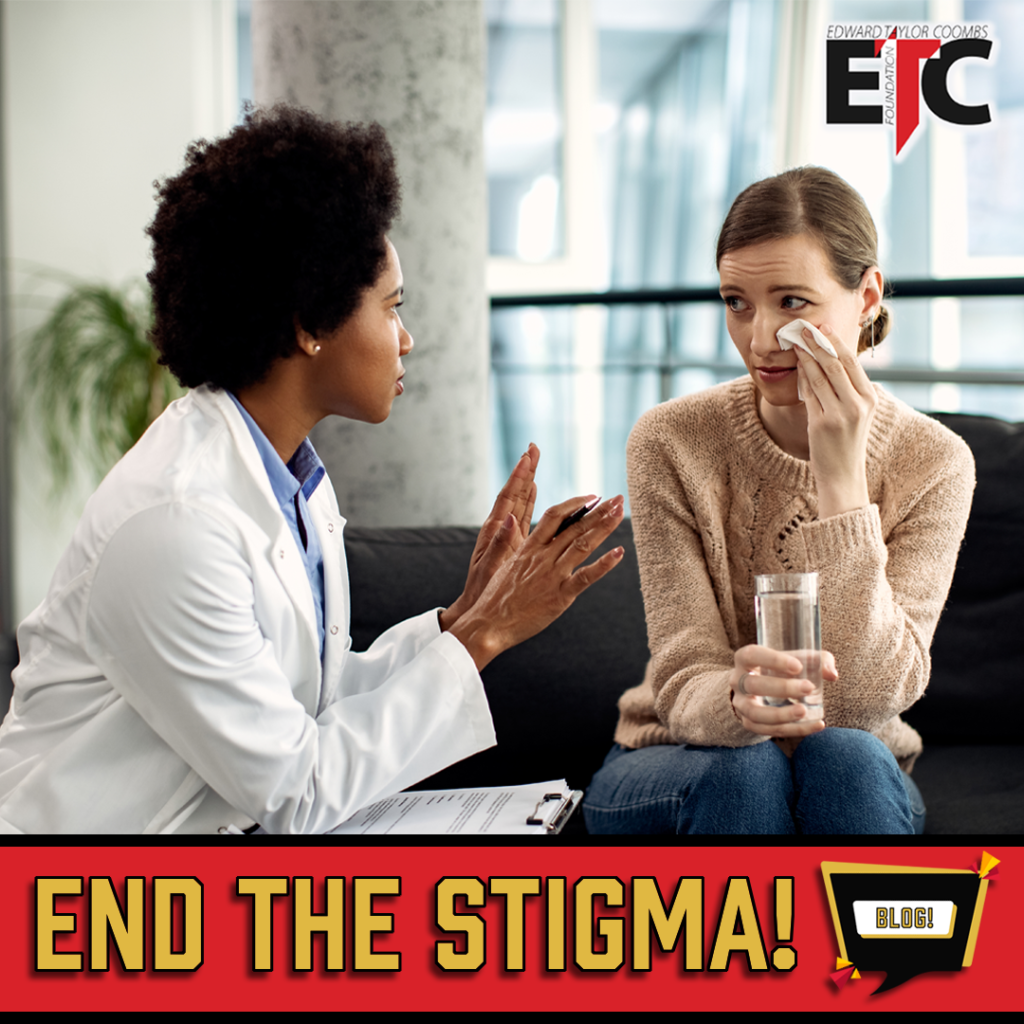It\’s Suicide Prevention Week, an important time for the Edward Taylor Coombs Foundation to share resources for those struggling with suicidal thoughts. By raising awareness, we can avoid the devastating and permanent decision to take one’s own life. The demand for information about mental illness is growing but can often be hard to find. Remember, 988 (the new crisis hotline) is open 24/7, so help will always be there!
It\’s time to stop treating mental health as a second-class citizen. Suicide is preventable. When we all work together, we can increase the public’s awareness of this serious health issue and get people the support they need to grow into healthy, happy adults. In a culture of constant connection, there are no bounds to spreading the word. Let’s overcome the stigma of this mental health crisis together and open the doors for more conversations about suicide.
The first step in suicide prevention is knowing the warning signs and understanding how to react. Emotional distress can disrupt someone’s basic, everyday routines, such as bathing, brushing teeth, and changing clothes. They might show little interest in their hobbies, isolate themselves from friends and family, and experience sudden changes in mood or increased agitation. Self-harm and substance abuse are major signs of a mental health crisis, and you should seek help for your loved one immediately. Unfortunately, some of these warning signs may go unnoticed, especially when someone withdraws from social interaction. That’s why it’s important to ask deeper questions and give your friend a call to hear their voice instead of texting.
Being open to talking about mental or emotional issues with a friend, family member, or co-worker can be the first step in getting them the help they need. It’s important to remind ourselves that as hard as it can be to bring up the topic with someone you’re concerned about, it is even harder for them to struggle with keeping it inside. When you’re ready to talk to someone about what they’re going through, remember to stay calm and avoid overreacting. Many people suffering a mental health crisis are on an emotional rollercoaster, so be patient and give them space to accept your support. The best thing you can do is listen more than you speak. Validate their feelings and let them know that help is available. If the situation is life-threatening, call 911 and ask for someone with mental health experience to respond, like a Crisis Intervention Team.
Creating a plan for how to deal with a crisis can make all the difference. Everyone involved will be prepared to do the right thing when a situation begins to feel dangerous. Write down your crisis plan and store it in a safe, but accessible, place. Your plan should be personalized to fit your needs, but some information to include would be:
- Personal information such as name, DOB, and address
- Contact information for trusted family members and friends
- Contact information for health care professionals
- Strategies and treatments that have worked in the past
- A list of warning signs and triggers
- A list of stress-reducing methods and ways to comfort
- Current medication(s) and dosages
- Current diagnoses
- Person’s treatment preferences
- Contact information for nearby crisis centers or emergency rooms
- A plan for creating a safe environment




















